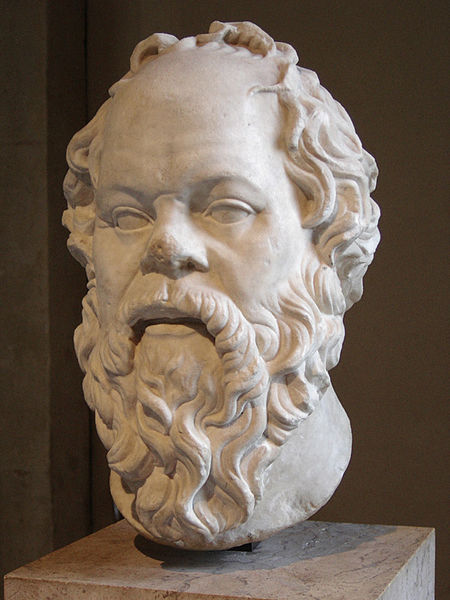Socrates was one of the greatest educators!

Socrates was one of the greatest educators who taught by asking questions and thus drawing out answers from his pupils (‘ex duco’, means to ‘lead out’, which is the root of ‘education’). Sadly, he martyred himself by drinking hemlock rather than compromise his principles. He lived very frugally and was known for his eccentricity. One of his pupils Plato, wrote up much what we know of Socrates.
Here are the six types of questions that Socrates asked his pupils. The overall purpose of Socratic questioning, is to challenge accuracy and completeness of thinking in a way that acts to move people towards their ultimate goal.
Conceptual clarification questions
Get them to think more about what exactly they are asking or thinking about. Prove the concepts behind their argument. Use basic ‘tell me more’ questions that get them to go deeper.
- Why are you saying that?
- What exactly does this mean?
- How does this relate to what we have been talking about?
Probing assumptions
Probing their assumptions makes them think about the presuppositions and unquestioned beliefs on which they are founding their argument. This is shaking the bedrock and should get them really going!
- What else could we assume?
- What would happen if … ?
- Do you agree or disagree with … ?
Probing rationale, reasons and evidence
When they give a rationale for their arguments, dig into that reasoning rather than assuming it is a given. People often use un-thought-through or weakly-understood supports for their arguments.
- Why is that happening?
- How do you know this?
- Can you give me an example of that?
Questioning viewpoints and perspectives
Most arguments are given from a particular position. So attack the position. Show that there are other, equally valid, viewpoints.
- Another way of looking at this is …, does this seem reasonable?
- What alternative ways of looking at this are there?
- Why it is … necessary?
Probe implications and consequences
The argument that they give may have logical implications that can be forecast. Do these make sense? Are they desirable?
- Then what would happen?
- What are the consequences of that assumption?
- How could … be used to … ?
Questions about the question
And you can also get reflexive about the whole thing, turning the question in on itself. Use their attack against themselves. Bounce the ball back into their court, etc.
- What was the point of asking that question?
- Why do you think I asked this question?
- Am I making sense? Why not?
‘We learn more by looking for the answer to a question and not finding it than we do from learning the answer itself.’ ~Lloyd Alexander

Free E-Book: Five Steps to Freedom

How to build a business that runs smoothly, profitably, and (mostly) without you
Feeling stressed out and overwhelmed with a business that is taking all your time - and not giving you enough in return?
Are you finding it challenging to hire the right team (and get them to do the right things)?
I wrote this little guide for you!
Enter your details below to receive your free copy!
